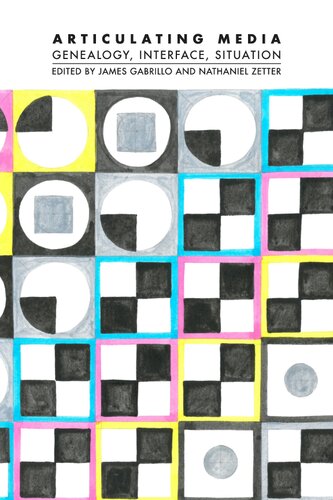

Most ebook files are in PDF format, so you can easily read them using various software such as Foxit Reader or directly on the Google Chrome browser.
Some ebook files are released by publishers in other formats such as .awz, .mobi, .epub, .fb2, etc. You may need to install specific software to read these formats on mobile/PC, such as Calibre.
Please read the tutorial at this link: https://ebookbell.com/faq
We offer FREE conversion to the popular formats you request; however, this may take some time. Therefore, right after payment, please email us, and we will try to provide the service as quickly as possible.
For some exceptional file formats or broken links (if any), please refrain from opening any disputes. Instead, email us first, and we will try to assist within a maximum of 6 hours.
EbookBell Team

4.8
64 reviewsTo 'articulate' media means to understand them by locating their connections in space and time. Articulating Media offers new approaches to the writing of technology and the technologies of writing by twinning an investigation of language with an attention to location. Where does media theory take place? How should media theory understand its own occupation of the spaces of media? What materialities might survive media's many articulations and associations?
Diverse in topic and method, the collection's nine chapters analyse those questions of value, representation, and categorisation that are held within the languages of media. Contributors consider media technologies - following previous volumes in the Technographies series - not as mute objects addressed through language, but as processes and devices situated in the very grammars and vocabularies of their address. Scholars of literature, film, musicology, art, design theory, and media history evaluate new linguistic possibilities for thinking across disciplines and for considering the significance of location to media-critical writing. Collectively, the book traces the ways in which media vernaculars have shaped the vernaculars of media theory, and proposes a few ways in which we might reshape them. With essays by Bernhard Siegert, Melle Jan Kromhout, Bernard Geoghegan, Louise Shen, Caroline Bassett, Emma McCormick-Goodhart, Renee A. Farra, Rebecca Ross, and Jussi Parikka.